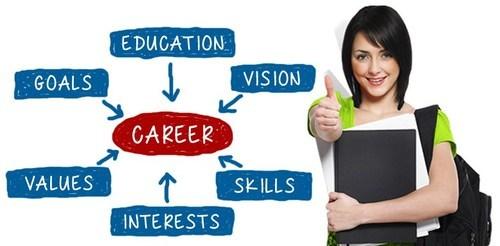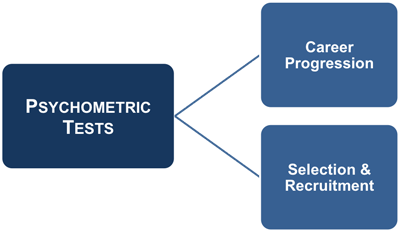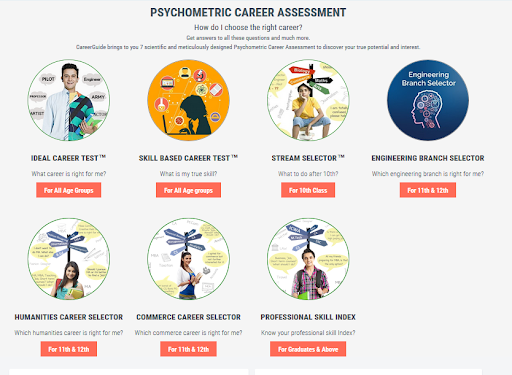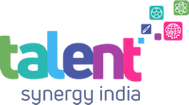Career Counseling
Career Counseling has greater relevance for students as they are on the crossroads of choosing a befitting professional/vocational course to streamline their career path our counselors outline career aspects in a great detail while taking counseling sessions of students and other individuals who have keenness towards career.
On the basis of their natural qualities and current status of Multiple Intelligence counselors suggest the adaptability of students in several domains and functions. This projects a picture of their readiness and limitations in pursuing that particular career stream. That’s how it helps in pin-pointing those attributes where students have to work upon acquiring knowledge and skills and where they have to sharpen their strong points.
It isn’t easy to decide on career option that will determine the rest of your life for you, especially at the tender age of 16 or 17. It does not help that often even parents are left confused about the right advice to give. The confusion a student faces is huge and varied in nature.
Should I continue with Science and opt for a B.Sc. degree?
Should I switch to Commerce?
Should I opt for a three-year regular course?
Should I go for a correspondence degree?
Should I go for professional careers such as CA, CS or Journalism?

DMIA analysis sets forth a lot of career fields in front of students. Talent Synergy has added many fields into it considering modern day’s employability scenario.
Opportunities are emerging in abundance but there is a stiff competition to grab the same. Survival of the fittest is the way out and WE may help in equipping students to sail through these challenges with ability and confidence. Our counselors elaborate, suggest and follow up on these remedial measures to students during counseling sessions.
How does the career counselling process work?

Process and steps
Step 1: Data gathering: (30 Minutes) we’ll ask you to fill up a questionnaire and take a psychometric test that helps us get a better understanding of your profile, skills, professional aspirations and issues you are currently facing.
Step 2: Biometric Test: (30 Minutes)
Step 3: Report Creation, Work-plan Creation
Step 4: Career Counseling Session (1hour)
Step 5 : Q and A Session (1 Hour)
Step 6: Tips, Remedial, action plan, Multiple Intelligence Report + psychometric Test result explained and handover to client (soft Copy and hard Copy )
That completes the end of the basic career counseling process. However, if you feel the need to get back after a few months to follow up on the progress, we’ll take that up as a fresh request. We’ll plan for a follow-up session to evaluate the progress and jointly tweak or enhance the work-plan if needed.
Introduction to Psychometric Tests
Psychometric tests are a standard and scientific method used to measure attributes like individual’s mental capabilities, intelligence, aptitude, personality and behavioral style. This test can also test the current state of the individuals multiple intelligences.
Psychometric tests are designed to measure candidate’s suitability for a role based on the required personality characteristics and cognitive abilities.
Psychometric tests have been used since the early part of the 20th century and were originally developed for use in educational psychology.
These days, outside of education, you are most likely to encounter psychometric testing as part of the recruitment or selection process.
Tests of this sort are devised by occupational psychologists and their aim is to provide employers with a reliable method of selecting the most suitable job applicants or candidates for promotion.
Psychometric tests are a very useful to tool for Individuals, corporates and institutions
The test is usually of about 20 minutes duration, followed by counseling session for the individual undergoing the test. There is no age limit for this test and anyone from 16 years onwards can undergo the test
Benefits
Helps to evaluate the multiple intelligences based on area of interest
Helps in selection of stream of study for young adults, making academic and career choices easier
Aids in making relationships better
It offers a comprehensive report on brain quotients of intelligence, emotions, adversity, creativity (popular as IQ, EQ, AQ CQ) of an individual

As a recruitment and selection tool, these tests can be applied in a straightforward way at the early stages of selection to screen-out candidates who are likely to be unsuitable for the job.
Psychometric testing is a process used by employers to measure psychological characteristics like ability, aptitude etc.; Personal qualities such as beliefs, values, interests and personality can also be assessed.
They provide a potential employer with an insight into how well you work with other people, how well you handle stress, and whether you will be able to cope with the intellectual demands of the job
Psychometric testing is now used by over 80% of the Fortune 500 companies in the USA and by over 75% of the Times Top 100 companies in the UK.
A psychometric test must be:
- Objective: The score must not affected by the testers’ beliefs or values
- Standardized: It must be administered under controlled conditions
- Reliable: It must minimize and quantify any intrinsic errors
- Predictive: It must make an accurate prediction of performance
- Non Discriminatory: It must not disadvantage any group on the basis of gender, culture, ethnicity, etc.

Psychometric Multiple Intelligence Test:
Eugene Burke, an occupational psychologist at SHL, said: “The term ‘psychometric assessment’ simply means the measurement of a person’s talents and covers motivation and aptitudes as well and how these talents best match a role in an organization. This model is based on MI model of Howard Gardner and talks about 9 (nine different multiple Intelligences) and 4 different Brain Quotients.
The whole test is based on Theory of Holland’s Occupational themes known as Holland’s Codes or the RIASEC theory. This research was established by Prof John L. Holland who is a prominent American psychologist. The assessment basically categorises all the career profiles into 6 types:
- Realistic: Practical work including mechanical or athletic ability
- Investigative: Incorporates observational learning, analysis and problem solving
- Artistic: This demands innovation and creativity
- Social: Working with or helping others for overall growth and development
- Enterprising: Usage of several influencing and managerial abilities
- Conventional: Structured work using data and information
The whole aspect also relies on the fact that no career or job will ever be limited to being characterised by a single facet. Each career is defined by at least a combination of at least 2 or more codes.

